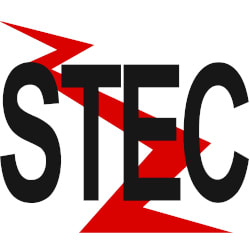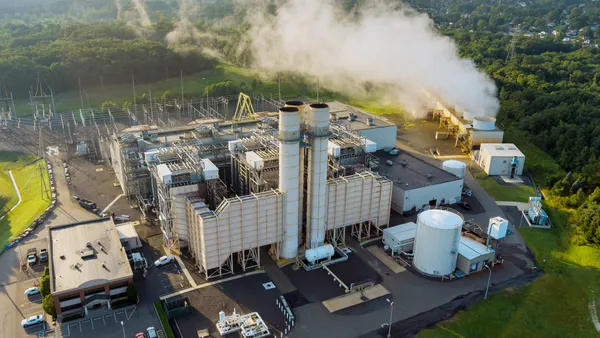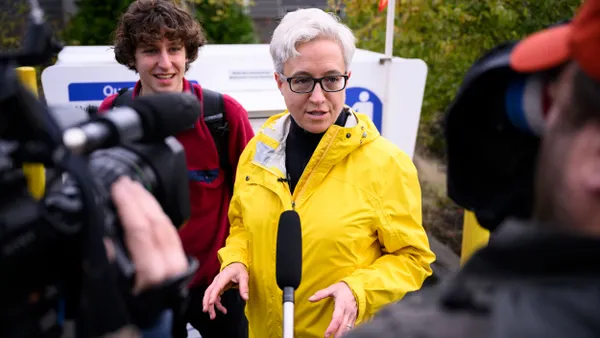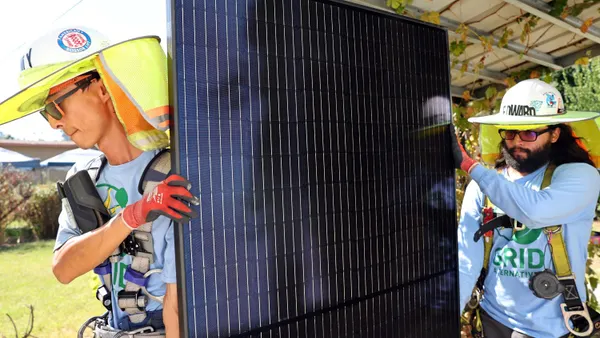The following is a viewpoint from Jigar Shah, a clean tech venture capitalist and founder of the solar developer SunEdison.
President Trump promised to create jobs. His anti-globalist platform also promised to pull America out of international trade agreements. He can’t do both. And soon, he’ll have to decide which is more important.
Because last week, a bankrupt Georgia-based solar company called Suniva filed a petition with the U.S. International Trade Commission calling for new tariffs on solar cells, and minimum prices for solar modules imported from abroad, to remedy their inability to compete with Chinese solar companies. While such a move would be in line with his campaign promises (Trump has referenced the 1974 Trade Act rule that Suniva filed their petition under as a way to use executive action on trade cases) it would effectively double the cost of solar in the US - threatening thousands of jobs.
While such a protectionist move might seem like a benefit for US solar panel makers, the reality is it would jeopardize the far greater number of people employed installing panels. The trade-off would be one sided, costing far more installation jobs than it would create manufacturing ones. A big league bad deal, he might say.
Somewhat recent history proves this point, and in a field that Trump has touched on repeatedly and promised to revive- American steel. The last time a petition like this taken up was in 2002, when President Bush put tariffs on foreign steel in an attempt to protect US workers. Unfortunately, the opposite happened. Industries that use steel ended up losing 200,000 jobs due to higher steel prices and the US steel industry ended up contracting by 15% in just a year.
If the gutting of one American industry weren’t enough, the tariff also triggered a WTO case the US lost, and retaliation from countries the tariff hurt. Just like Canada threatening to block coal exports in response to Trump’s wood tariff, the European Union threatened retaliatory tariffs on politically sensitive targets like Florida citrus, farm equipment and cigarettes. Within a month of the threats, the Bush Administration buckled under the pressure and rescinded the tariffs.
Given Trump’s nearly immediate change of heart on NAFTA withdrawal after talking with Canada and Mexico’s leaders, one can only imagine that if he were to slap tariffs on Chinese panels, they wouldn’t last too long.
Which is good, because installing solar panels is big business. Currently there are 260,000 people employed in the solar industry. The tariffs and minimum price for modules that Suniva are requesting would likely double the price of panels, setting the industry back years - literally putting panel prices back where they were in 2012. If this happened, the United States would have the highest panel prices in the world, setting us at a marked disadvantage on the global stage for an effort that would be sold as a protection of American markets. Billions of dollars of investment would be curtailed with farmers expecting lease payments and blue collar workers expecting continued employment taking the brunt of the downturn.
There’s one more wrinkle here - the competition between solar and coal for generating electricity. Trump has made no secret of his love for the coal industry (despite ongoing rhetoric about how the government shouldn’t pick winners or losers) and it’s all too easy to imagine that he would impose these tariffs knowing full well it will cause thousands of job losses in solar, because he could sell it as a way to help coal.
But a new report from Columbia University on what is driving down coal use shows that handicapping solar would be no coal savior. It quantifies the causes of coal’s decline, showing 49% of its loss is due to natural gas, 29% is due to decreased energy demands as a result of increases in energy efficiency, and only 18% is due to renewables (and only 3.5% of the reduction in coal use due to environmental regulations.)
So in the months to come as the complaint makes its way through the arbitration process, Trump needs to think about the choice he has on the issue. If he honors his anti-international and pro-coal campaign rhetoric and doubles the price of solar panels with a tariff, he’ll be stunting the growth of popular industry that provides thousands of jobs and hundreds of millions in mostly rural tax revenue. In return, he will probably find most of the world ganging up together against him and putting politically painful taxes on American exports.
Jacking up the price of solar panels to 2012 levels, and thereby slashing solar employment, for little-to-no-benefit of the coal or any other industry is likely not what Trump had in mind when he sold Americans on the idea of making our country great again.












